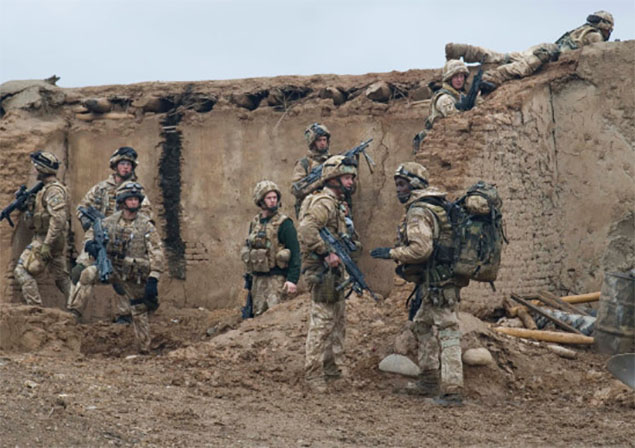Apparently more than 20 countries and organizations for the duration of the two-day Tashkent Conference agreed that peace and security in Afghanistan were essential for prosperity in the region and Afghanistan. A joint declaration issued at the end of the conference took place in the Uzbekistan capital, Tashkent, noted the signatories’ “strong backing for the National Unity Government’s offer to launch direct talks with the Taliban, without any preconditions.”They also called upon the Taliban to “accept this offer and opportunities for a peace process that is Afghan-led and Afghan-owned.
It follows the recent Kabul conference in which President Ghani offered the precondition talks and promise do allow the Taliban to establish itself as a political party and said he would work to remove sanctions on the militant group, among other incentives, if it joined the government in peace negotiations. In turn, the militants would have to recognize the Kabul government and respect the rule of law. Meanwhile, most Afghan people and political parties urge Taliban to use the opportunity and present their own wants instead of killing and destructions. Accordingly, it was emphasized that we must have the courage to listen to grievances, analyses the root causes and drivers of conflict, and hear a diversity of proposals for reconciliation.
Nevertheless, Taliban has not formally announced their stance, but earlier insisted in direct talks with the United States. The Taliban also says that NATO forces must withdraw before negotiations can begin. Meanwhile the United States has refused to withdraw troops and on contrast deployed some fresh troops in Afghanistan and insisted that the Afghan government must play a lead role in peace negotiations. Also earlier President Ghani had said that the threats facing the international community were from transnational terrorist networks and transnational criminal organizations. “Both are deeply interconnected, do not respect borders, and our global in reach and influence.”
Based on President’s expressions, to effectively confront these threats, it is essential that the region take away the platform inside Afghanistan that the Taliban provides to transnational terrorist and criminal networks. “Inclusion of Taliban through a political process in the fabric of society and polity will enable national, international and regional energies to focus on the threats of terror and criminality.”It is for the interest of countries in the region to take action and do their best to stop the conflicts in Afghanistan, otherwise the conflict could spread to neighboring countries and eventually destabilize the entire region.
So, the international community, especially important organizations like the UN and EU’s cooperation is vital for boosting the peace process. Meanwhile regional powers, especially Afghanistan’s immediate neighbors, have influence over the Taliban, they can convince the Taliban leaders to sit down with the government of Afghanistan to reach an agreement on ending the war in their country. The Central Asia countries and Afghanistan are united by a shared history, culture and geography. They have an enormous potential for jointly tackling regional threats, increasing trade and connectivity. The conference indeed gives appropriate prominence to Afghanistan’s neighbors and partners, as well as countries that have also supported the post-2001 political order and reconstruction effort. It is important that the region should acknowledge the Afghan-owned nature of the peace process and commit to accepting the agreement reached between the Taliban and the government.
More specifically, the relationship between Afghanistan and Pakistan is very important. Only Kabul and Islamabad together can deal with the Taliban, politically if possible, and militarily if necessary. Counterinsurgencies are essentially a governance issue. Afghanistan needs to conciliate the areas under the Taliban control, and Pakistan should help by making its lands inhospitable to them. And both must work on joint border management and resolution of the refugee problem. This is a long-term plan, but it is doable. U.S. engagement with them would be essential to their success, as would be China’s involvement.
Recently, Foreign Minister Khawaja Asif said bringing Taliban to the negotiating table and establishing peace and stability in Afghanistan is a shared responsibility of the international community. Addressing the Tashkent Conference on Afghanistan in Uzbekistan, he said Pakistan has been consistently stressing for the resolution of Afghan conflict through a political settlement. He emphasized the need of a regional approach for lasting peace and stability in Afghanistan, and the region.The Foreign Minister reiterated Pakistan’s support for Afghan President Ashraf Ghani’s national peace and reconciliation plan unveiled during Kabul process meeting, and his offer of peace talks to Taliban under an Afghan-led and owned process. Khawaja Asif said there is a need of collective pressure on Taliban to shun violence and join the peace process. The foreign minister expressed concerns over unchecked proliferation of Daesh and phenomenal increase in drug production in Afghanistan. He emphasized the need for cooperation between Afghanistan and its neighbors to prevent cross-border movement of terrorists and criminal networks.
Lastly, the insecurity crisis has really reached in the level that no countries would be safe if the new approaches fail to resolve the problems whereas a fierce new fighting season is expected to kick off in the spring and summer. Terror groups frequently took lives of thousands of civilians from both countries. Hopefully, this must be the high time to end the crisis by friendly and fundamental agreements. However, such hopes and approaches have been repeating in one way or other ways since 2001 and it seems that talks without collective will ensuring all parts of concerns would be fruitless.
Home » Opinion » Will new approaches end the war in Afghanistan?
Will new approaches end the war in Afghanistan?
| Mohammad Zahir Akbari

